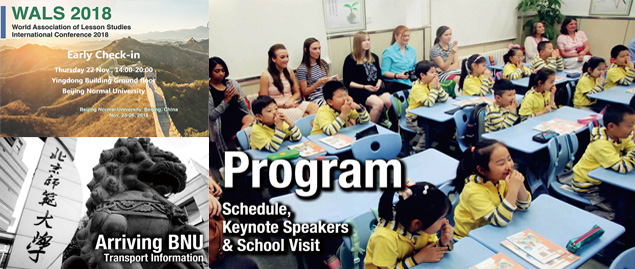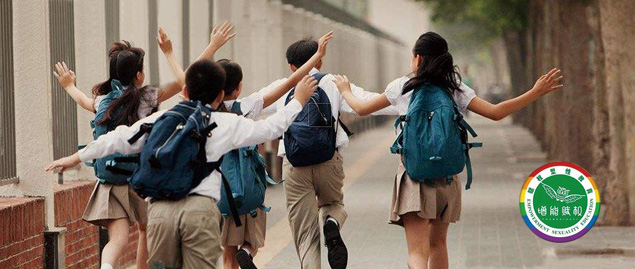
Partner Organization: Beijing Normal University - Teacher Education Research Center
Project Duration: Oct 2018 - Oct 2020
Project Status: Ongoing
Lesson study is a systematic investigation of classroom teaching and is carried out by a group of teachers. Its purpose is to improve the quality of teaching and learning. Current studies mainly focus on international experience and speculative research, while little formal study has been conducted specific to China.The foundation partnered the Teacher Education Research Center of Beijing Normal University for this project with the goal to construct a suitable research model for lesson study in China. The project studied core concepts of existing models, the roles and organization of participants, the method and evaluation of teacher’s learning; addressed questions, collected feedback and analyzed improvements raised during lesson study activities. In addition, the team studied the relationship between each models’ unique characteristics and the resulting teaching improvements. The project adopted a qualitative approach, collecting observations from lesson study activities and interviews with participants. The data collected was then analyzed against the models, tested and refined through several rounds of trials. This locally adapted model, is not only beneficial to front-line educators but also serves as a valuable store of past experiences and accumulated wisdom. It set a strong foundation for future curriculum research in China.

Partner Organization: Beijing Huairuibang Consultation Centre
Project Duration: Sep 2018 – Aug 2020
Project Status: Ongoing
There has been growing importance on sex education in China in recent years. Despite having an approved sex education training certification by the National Professional Talent Certification Centre, there was still much to be desired. Not only was there a shortage of qualified trainers, existing programmes were unstructured, published texts were unprofessional and lacked scientific basis. As a result, the Beijing Huairuibang Consultation Centre put together a sex education toolkit for children across different ages to facilitate effective sex education for trainers and parents. The development of the toolkit was based on the theory of empowerment education and focuses on four key areas: (1) the human body and the rights of the human body; (2) family and emotions; (3) gender equality; (4) intimacy and sexual diversity. The toolkit is a systematic, scientific and workable solution to close the gaps in sex education in China. It can be applied to family, school, community and peer-based sex education.• Study on Sex Education in Rural China

Partner Organization: Rural Women Development Foundation Guangdong, School of Public Health at Peking University
Project Duration: May 2018 - Jul 2019
Project Status: Completed
It is hard to separate sexuality from an individual’s personal identity when discussed in a socio-economic and cultural setting. An individual’s sexual development is complicated and multi-faceted, which is why it is crucial for adolescents to understand the concepts and be equipped with the adequate knowledge during the years when their gender identity is being formed. Sex education must reinforce the values of mutual consent, equality, responsibility and respect which are key to having safe and healthy sexual and social relationships. However, this is not always the case as a 2013 study revealed that sexual abuse affects 15.3% and 13.8% of Chinese girls and boys (below the age of 18) respectively (Ji, Finkelhor & Dunne, 2013). In this grim climate, rural adolescents, in particular the “left-behind-children” face the greatest risk due to the lack of resources for education, emotional support and protection from their absent parents. Sex education in rural China should not be passed as physical education, but rather a lesson on safety, protection, gender equality, sexual and reproductive health. This should extend not only to the adolescents but also to guardians, teachers and social workers. This is why the Beijing Yifang Foundation, the Rural Women Development Foundation Guangdong and the School of Public Health at Peking University joined forces for this study.In 4-5 villages across the country, the team surveyed the knowledge level of adolescents, guardians, teachers, public security, village doctors and other stakeholders on life skills, sexual safety and protection, and gender equality. The empirical research from the study sets the basis for future programmes on life skills training, sexual education, planning and implementation of relevant policies for the mental and physical well-being of rural adolescents.

Partner Organization: Beijing City Haoruien Social Organization Capacity Building Development Centre
Project Duration: Jan 2018 - Jan 2019
Project Status: Completed
In recent years, the National Women’s Federation, together with the education department and relevant departments effected the National 10th and 11th 5-year Plan for family education. The most recent plan announced in Nov 2016, aimed to implement 18 initiatives across 7 key areas of family education by 2020. Although the family education industry in China has made great strides, however many problems still existed like using the wrong teaching methods and being fixated on learning impediments. This gave rise to other areas that are equally important for the healthy development of the body and mind to be neglected. It was clear that the delivery of the education programme plays a vital role for success too.This project aims to address the issues faced by China’s family education industry by developing a set of training material and teaching guide that is accessible, straightforward and easy to understand. After which, the project set up effective communication channels to publicize and distribute the material to garner support from parents. This included mobile learning, micro-courses, a combination of online and offline channels such that family education can be accessed online, at schools and through the community. This project was carried out in collaboration with the Beijing City Haoruien Social Organization Capacity Building Development Centre.

